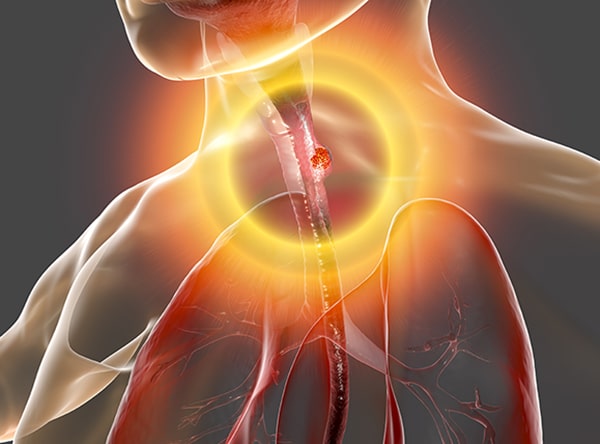Prolonging Disease-free Survival from Esophageal and Gastroesophageal Junction Cancer
The FDA has approved an immunotherapeutic for certain patients with these cancers who had their cancer completely resected and received chemoradiotherapy before surgery.
The U.S. Food and Drug Administration (FDA) approved the immunotherapeutic nivolumab (Opdivo) for certain patients with esophageal or gastroesophageal junction (GEJ) cancer who had residual disease after surgery and pre-surgical chemotherapy and radiation therapy.
Nivolumab belongs to a class of immunotherapy drugs called immune checkpoint inhibitors. It blocks the function of the PD-1 protein to release the brakes on immune cells called T cells so that they can kill the cancer cells.

The approval was based on the results of CHECKMATE-577, a randomized, multicenter, double-blind clinical trial conducted in 794 patients with completely resected cancer of the esophagus or the GEJ—where the esophagus and the stomach join together—who received chemotherapy and radiation before surgery and were subsequently diagnosed with residual disease. Patients received either nivolumab or placebo for up to one year of treatment. The trial demonstrated a significant improvement in disease-free survival in patients receiving nivolumab as compared with those receiving placebo—22.4 months and 11 months, respectively. Patients treated with nivolumab were 31 percent less likely to experience disease recurrence.
For this indication, nivolumab received orphan drug designation.
More than 19,200 new esophageal cancer cases were expected to occur in the United States in 2021. GEJ cancer is a rare form of esophageal cancer whose incidence has been on the rise in the past few decades.
The FDA decision was rendered on May 20, 2021.
